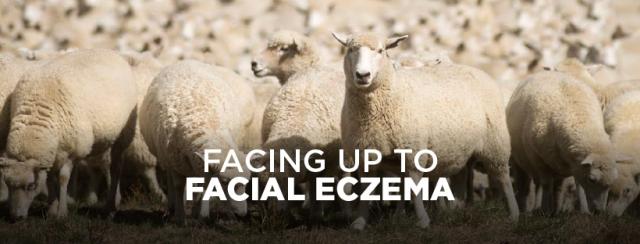Costing New Zealand farmers an estimated $332 million annually in lost production, Facial Eczema (FE) has been a problem for New Zealand farmers for over 100 years.

While typically associated with warmer, wetter parts of the country, FE is likely to become more widespread under a changing climate, meaning farmers in more southern regions could soon be grappling with the disease.
In a bid to better understand FE and develop tools to help farmers mitigate the production losses associated with FE, Beef + Lamb New Zealand (B+LNZ) has invested in a three-year FE research study which includes analysing farmer-collected sheep-poo samples.
The study, that also involves Awanui Veterinary (formerly Gribbles), is looking for fungal spores associated with FE found in the poo. This indicates that sheep have eaten the fungus in the pasture.
So far this year, 202 farmers have regularly collected and submitted samples. Dr Cara Brosnahan, B+LNZ’s Principal Adviser Animal Health Research, says ideally, they would like to have 300-350 farmers contributing to the study by year three.
As well as receiving their sample results and annual study results, contributing farmers get access to FE and animal health experts through seasonal webinars, access to a map showing areas where fungal spores have been detected around NZ and networking opportunities with other farmers in the study through a WhatsApp Group.
Speaking on one of the webinars, Dr Brosnahan said surprisingly, the first spores to appear in early January this year were in samples sent from the Tasman/Nelson region.
Of the 135 farms where poo samples were tested from the North Island, 60 had positive spore counts during January and February, although to date, their numbers are low risk.
Of the 67 South Island farms participating in the study, spores have been detected at 14 farms so far, the highest levels of which were in Tasman.
Wormwise programme manager and animal production vet, Ginny Dodunski told farmers on the webinar that weight loss, reduced growth rates and reproductive performance were all signs of sub-clinical FE.
“Nonresponsive weight loss in an ewe is a classic sign of sub-clinical FE.”
She said chronic long-term exposure to the disease could also potentially make ewes more susceptible to other diseases including parasites.
Dr Cara Brosnahan and Ginny Dodunski will be discussing this important research work during the field trip at Beef + Lamb New Zealand’s Annual Meeting and Showcase in Nelson on Tuesday, 19 March.
For more information about Facial Eczema go to Knowledge Search or join our B+LNZ team at the Facing up to Facial Eczema workshop in Blenheim on the 20 of March.